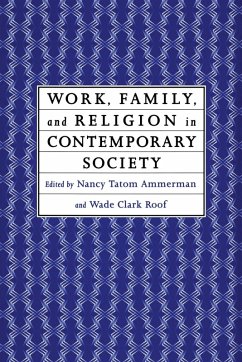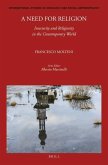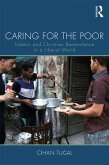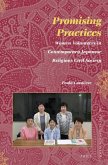Until recently, religious institutions have been organized to suit the traditional American family, where the wife stayed at home, caring for children. "Work, Family and Religion in Contemporary Society discusses how churches and synagogues today are beginning to adapt to the reality of the American family: dual-career marriages, high levels of divorce, interfaith marriages, partnerships that may not be marriages. Religious organizations must serve families that don't fall into the "Ozzie and Harriet" mold. The first group of papers in this edited volume documents changing trends in the connection between religion, work, and the family. As families change, as more women enter the paid work force, and as more people advocate individualism and feminist principles, a barrier grows between families and organized religion. Traditional families still feel tied to conventional religious participation, but people committed to new patterns of family and work are looking for alternatives. In the second part of the book, we see how changing families and flexible congregations are experimenting with new forms of religious life. Many religious organizations have started day care centers, are hospitable to women clergy, have changed to inclusive language, and alter their weekly schedules. African-American churches are tying work and family to religion, while dealing with both the "truly disadvantaged" and the black middle class which may feel alienated from the church. Other examples of special efforts include groups at the margins of institutional religious life: Catholics who meet without a priest, house church groups, and even further outside organized religion, Limina, a group offormer Catholic women who draw on ancient rituals to celebrate women. In this book, we see how non-traditional families are turning away from religion as they have known it, but are creating new spiritual patterns.








